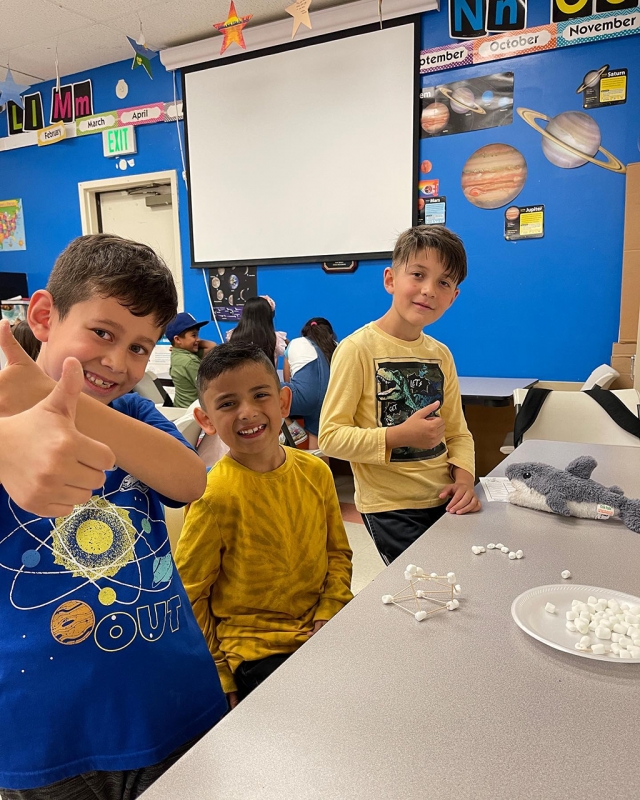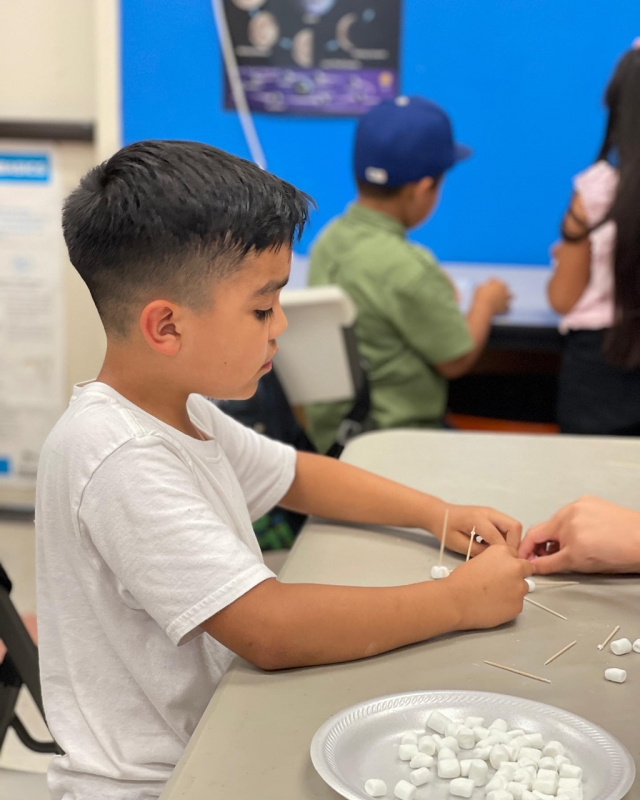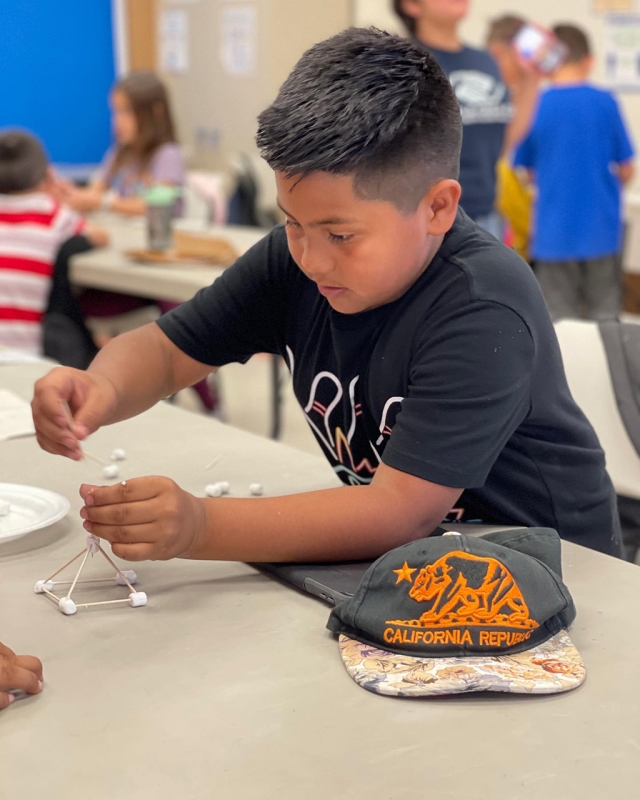|
By Gazette Staff Writers — Wednesday, June 29th, 2022
 On Friday morning to midday, on June 24th, Edison workers had road work signs up at Central Avenue and the Sespe intersection to work on the power lines, (maybe) preparing for the summer heat ahead. Enlarge Photo |
|
By Gazette Staff Writers — Wednesday, June 15th, 2022
 Pictured is Rotary President Andy Klittich inducting two new members into the Rotary Club of Fillmore: Carina Forsythe and Anna Reilley. Photo credit Rotarian Martha Richardson. Enlarge Photo |
|
By Gazette Staff Writers — Wednesday, June 8th, 2022
 Fillmore Rotarian Cindy Blatt and FHS Interact Club Advisor Jeremiah McMahn introduced six Interact Club members who visited Fillmore Rotary last week. They were Emma Myers, Melissa Higuera, Jimena Cortes, Gabriela Herrera, Brianna Camacho and Nathalia Magana. Interact Clubs bring together young people to develop leadership skills while discovering the power of Service Above Self. The Club plans projects to help their school or community and participates in Rotary projects as will. Rotary Club sponsors, mentors and guides Interactors as they carry out their projects and develop leadership skills. Photo credit Rotarian Martha Richardson. Enlarge Photo |
|
By Gazette Staff Writers — Wednesday, June 1st, 2022
Join us, the Friends of California Condors Wild & Free and more Ventura County outdoor recreation groups, at Sheills Park in Fillmore, for the first ever Condor Country Nature Fest next Saturday, June 4th from 11:00am to 3:00pm. Condor Country covers over 10,000 square miles in Southern California, across so many wonderful nature areas that we can all go out and enjoy; and oh, and how many great ways there are to get outdoors and enjoy our environment! The Condor Country Nature Fest will help connect you to local outdoor recreation and education opportunities in Ventura County |
|
By Gazette Staff Writers — Wednesday, June 1st, 2022
On May 18, 2022, Nova Storage received unanimous Planning Commission approval to expand its self-storage facility in Fillmore by 16,500 square feet, or about 60%. The two-story addition will feature at grade entrances on both floors and 14 drive up units. This project will represent Novaâs second expansion in Fillmore. The existing storage facility is a conversion of a 1947 fruit packing plant. The new building will incorporate a âsaw-toothâ roof feature to tie together the two buildings architecturally. The project will also include upgrades to the adjacent bike path. The expansion is expected to open in Spring 2023. âNova Storage would like to thank the Planning Department for their support of this project.â said Andrew Rankin, President of Nova Storage. About Nova Storage: Headquartered in Mission Hills, California, Nova Storage offers Safe, Clean, Well-Lit and Secure self-storage to over 7,000 tenants. Founded in 1982, Nova is locally owned and operated, with ten locations across Los Angeles, San Bernardino and Ventura Counties. Nova Storage Fillmore is open for business, and customers can reserve their own secure space by visiting NovaStorage.com or calling (805) 944-1392. |
|
By Gazette Staff Writers — Thursday, May 26th, 2022
Man Arrested for Domestic Violence, ADW, Robbery, Criminal Threats, Burglary & Felon in Possession of a Firearm - 12/12/2021 EDITION FILLMORE GAZETTE UPDATE: On May 4, 2022 all misdemeanor and felony charges were dropped against Lang Martinez. |
|
By Gazette Staff Writers — Thursday, May 26th, 2022
Where: Fillmore High School Drama Room â right across from the Memorial Building When: June 1st at 6pm We are a culturally rich community, but we have been missing a vital part of our artistic core â live theatre. Itâs time we pushed for return of this much-loved art form that has been such a vital part of our community â our culture â for decades. Itâs time for The Sespe Players. After a challenging couple of years (due to the pandemic), your local community theatre troupe, The Sespe Players, Inc., are gearing up for the upcoming season. Our first production is in the planning stage and the rest of the performance schedule is yet to be established. We could sure use your input! On June 1st, at 6pm, The Sespe Players will meet in the Drama Room at Fillmore High School (directly across the street from the Memorial Building). We will be discussing the upcoming jukebox musical (woohoo!), available performance spaces, future productions, and welcoming our new and returning members (YOU!). Every performance troupe needs actors, of course, but we would welcome any and all with the desire to help with set construction, lighting design, costuming, prop handling, directing, stage managing, accounting⊠you name it, we could use your talents! |
|
By Gazette Staff Writers — Thursday, May 26th, 2022
All following items approved by unanimous voice vote: |
|
By Gazette Staff Writers — Thursday, May 26th, 2022
 The Rotary Club of Fillmore sent three FHS Juniors to RYLA Rotary Youth Leadership Awards camp in Ojai. The goal is Building Tomorrowâs Leaders through Leadership, Citizenship and Personal Development. The three students were (l-r) Jovany Perez, Cecelia Arias and Paola Ruiz. They talked about their experiences, meeting new people and being part of a team and working together. The ropes course was the scariest challenge; they had to rely on their teammates. On Sunday, at closing, Jovany received a Valor Award for helping someone, who was scared, succeed to the end. Photo credit Rotarian Martha Richardson. Enlarge Photo |
|
By Gazette Staff Writers — Thursday, May 19th, 2022
In observance of the Memorial Day holiday, employees of Santa Clara Valley Disposal will be taking the day off on Monday, May 30. As a result, Fillmore residential customers will have their trash, recycling and yard/organic waste collected on Saturday June 4, one day later than usual. The regular Friday collection schedule will resume the following week. Harrison Industries serves the cities and surrounding unincorporated areas of Ventura, Ojai and Camarillo as well as the unincorporated areas of El Rio, Somis, Ojai Valley, the Channel Islands beach communities and the city of Carpinteria as E.J. Harrison & Sons; Fillmore and surrounding unincorporated areas as Santa Clara Valley Disposal; and the unincorporated areas of Newbury Park as Newbury Disposal. For more information, visit www.ejharrison.com |
|
By Gazette Staff Writers — Wednesday, May 11th, 2022
 The Fillmore Philanthropic, Education, Organization (PEO) Chapter GY presented the 2022 Education Award to Emilia Magdaleno. Also pictured are PEO committee members Carolyn Diaz, Jan Lee, Pat Morris and Joanne King who presented Emilia with her award. Photo courtesy Martha Richardson. âWomen Helping Women Reach for the Stars.â Enlarge Photo |
|
By Gazette Staff Writers — Wednesday, May 4th, 2022
 (l-r) Rotary President Andy Klittich, District Attorney Erik Nasarenko, and Fillmore Police Chief and Rotarian Garo Kuredjian. Photo credit Rotarian Martha Richardson. Enlarge Photo Erik Nasarenko, District Attorney for the County of Ventura, was the Fillmore Rotary speaker last week. He is a Rotarian and Paul Harris Fellow. Before he became the District Attorney he was a prosecutor for domestic violence and sex crimes. Since he became the District Attorney, he has hired 15 prosecutors; one is a Fillmore woman, Twila Atmore, daughter of Clark and Shelley Johnson. One of his goals has been to get grants from the Department of Justice to form a Cold Case Department, to test DNA samples and solve more crimes. |
|
By Gazette Staff Writers — Wednesday, April 27th, 2022
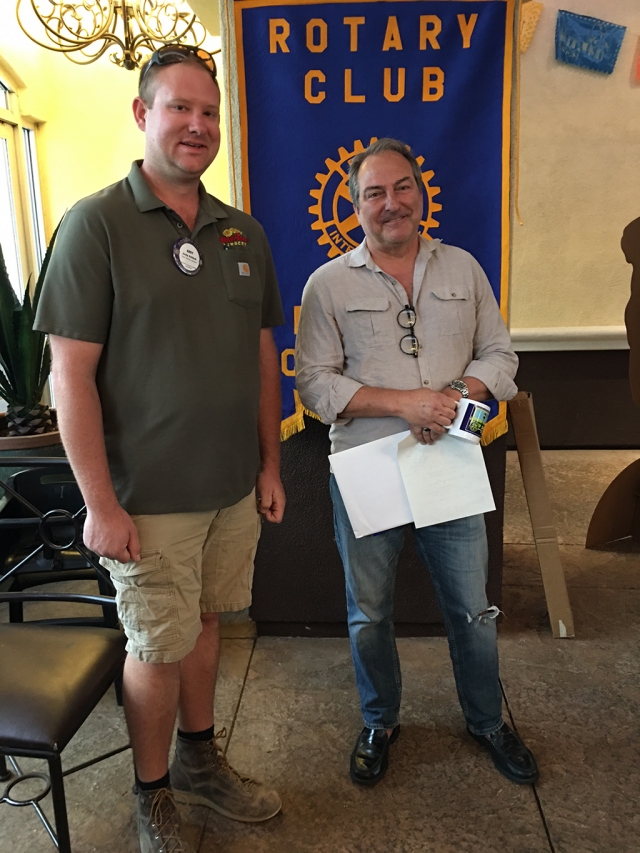 Rotary President Andy Klittich, left, inducted new member Greg Agostinelli into the club last week. Greg is the Arts Commissioner, and is involved locally in music, proposing the Film Festival concept. Photo credit Rotarian Martha Richardson. Enlarge Photo |
|
By Gazette Staff Writers — Wednesday, April 27th, 2022
Council Votes 7A - 7E - 4-0 |
|
By Gazette Staff Writers — Wednesday, April 20th, 2022
 Last week Fillmore Rotary Club President Andy Klittich welcomed their District Governor, Dana Moldovan. She was originally from Romania and joined the Rotary Club of Westlake Village in 2002. Her slogan this year is âThink Differentâ which is what we have had to do during the pandemic. Many clubs met on Zoom and the Rotary International Convention was virtual, but there was still leadership training, fellowship and plans for the new normal. Moldovan congratulated the Fillmore Club for winning the Silver Club Award for last year. She was also happy to hear about how the Club is supporting Fillmore youth through scholarships, dictionaries, water safety, Interact Club, RYLA, etc. Photo credit Rotarian Martha Richardson. Enlarge Photo |
|
By Gazette Staff Writers — Wednesday, April 13th, 2022
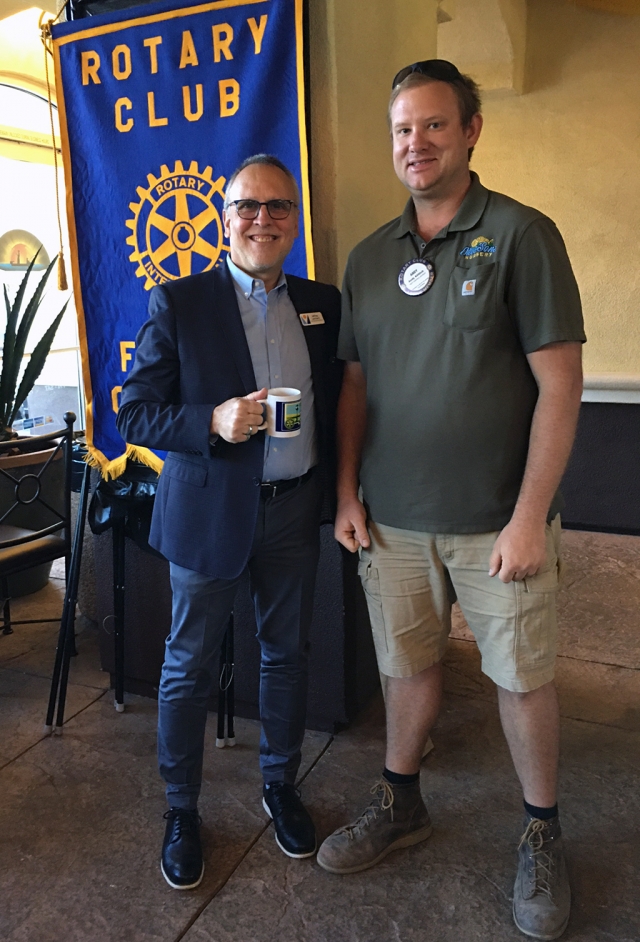 On Wednesday, April 6, Rotary Club President Andy Klittich (right) welcomed guest speaker Jeffrey Lambert, Chief Operating Officer of the Ventura County Community Foundation, a nonprofit center. The organization represents donors who want to give back to the community and invests money so yearly donations can be made. They provide funds to other non-profits to help them grow, give scholarships to change kidâs lives, have caregivers who navigate hospitals to help people, and they help the Early Childhood Preschool facilities in Santa Paula with funding. This is only a small example of what they do. For more info: VCCF.org. Photo credit Rotarian Martha Richardson. Enlarge Photo |
|
By Gazette Staff Writers — Wednesday, April 6th, 2022
 S.T.E.M. Friday! A Marshmallow Engineering Challenge was held at the Piru Boys & Girls Club. The activities keep the fun and learning going for all to enjoy. Photos courtesy https://www.facebook.com/bgclubscv. Enlarge Photo |
|
By Gazette Staff Writers — Wednesday, March 16th, 2022
 (l-r) Santa Clara Valley Boys & Girls Club Youth of the Year, Gonzalo Garcia Jr. with SCVBGC CEO Jan Marholin. Enlarge Photo March 2022 Congratulations to our Youth of the Year representative Gonzalo Garcia Jr. Youth of the Year is our signature effort to foster a new generation of leaders, communicators and goal setting young adults to prepare them to meet the challenges of adolescence and adulthood. Gonzalo from our Fillmore Clubhouse was picked because he has the signature qualities of a leader. He excels as a good communicator, problem solver, and a motivator. Gonzalo also had stellar letters of recommendation commending his extraordinary efforts to be a positive role model for anyone around him. Join us in congratulating Gonzalo for his achievements and for being an agent of change. We are proud to have him represent the Boys & Girls Club of Santa Clara Valley and we look forward to watch him achieve his goals. |
|
By Gazette Staff Writers — Wednesday, March 9th, 2022
 Friday Robotics Fun! Students put together Mechanical Engineering Rovers & Vehicles as part of Robotics Day this past Friday at the Boys and Girls Club in both Fillmore and Piru Clubhouses. Pictured are two kids looking over directions as the work to put together their robot vehicles. Photos courtesy https://www.facebook.com/bgclubscv Enlarge Photo |
|
By Gazette Staff Writers — Wednesday, March 9th, 2022
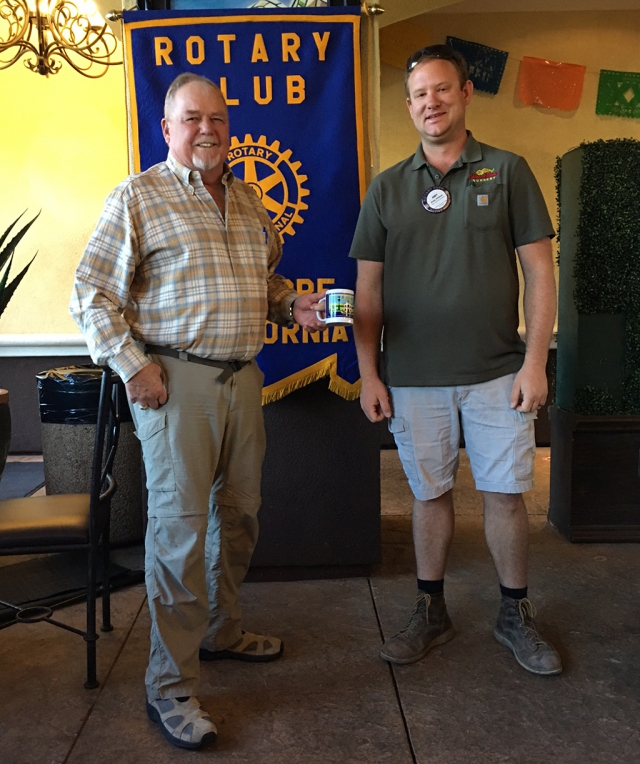 Pictured is Fillmore Rotary President Andy Klittich (right) with Rotarian Dave Andersen, who attended President Elect Training Session (PETS) recently at the LAX Marriott. There were about 1,000 Rotarians present from all over. There were many workshops and tremendous keynote speakers. Andersen learned more about the workings of Rotary and was impressed by how organized everything was. He commented that when he is Rotary President, July 1st, he wants all the Club members to work together, and stated he now knows he has access to resources to get things done. Courtesy Martha Richardson. Enlarge Photo |








